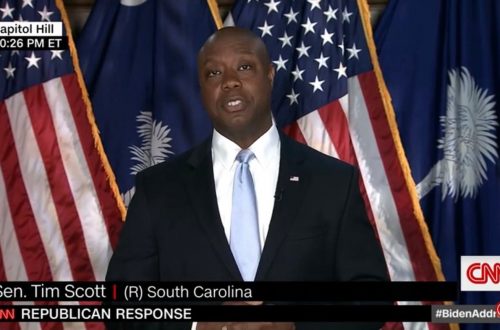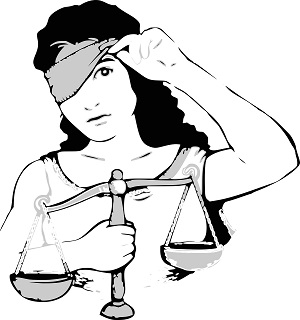 Someone asked me several months ago who I favored for President in ’08. I told him Senator Rick Santorum would be my pick. I meant it then, and I still feel that way now. It seems to me that there are too few politicians who successfully bring their faith to bear upon their politics in a way that is consistent with a Christian worldview. In my view, Rick Santorum is one of the few who does it and who does it well.
Someone asked me several months ago who I favored for President in ’08. I told him Senator Rick Santorum would be my pick. I meant it then, and I still feel that way now. It seems to me that there are too few politicians who successfully bring their faith to bear upon their politics in a way that is consistent with a Christian worldview. In my view, Rick Santorum is one of the few who does it and who does it well.
Not only has Senator Santorum been a stalwart advocate for the unborn and for the traditional family, he has also been “at the helm of virtually every major anti-poverty initiative this decade, from job training to fair housing for people with AIDS to Third World debt relief” (source, source). For these reasons and more, Santorum’s likely defeat on Tuesday will not only be a loss for Pennsylvania, but also for the nation.
Peggy Noonan writes about Senator Santorum today in her column for the Wall Street Journal. One anecdote is worth quoting at length as it gives a little bit of insight into Santorum the man.
A month ago Mr. Santorum and his wife were in the car driving to Washington for the debate with his opponent on “Meet the Press.” Their conversation turned to how brutal the campaign was, how hurt they’d both felt at all the attacks. Karen Santorum said it must be the same for Bob Casey and his family; they must be suffering. Rick Santorum said yes, it’s hard for them too. Then he said, “Let’s say a Rosary for them.” So they prayed for the Caseys as they hurtled south.
A friend of mine called them while they were praying. She told me about it later, but didn’t want it repeated. “No one would believe it,” she said.
But I asked Mr. Santorum about it. Sure, he said, surprised at my surprise. “We pray for the Caseys every night. We know it’s as hard for them as it is for us.”
Personally I’ll shed no tear for the careerists of either party who win or lose, nor for the BlackBerryed gargoyles in the second row of the SUV who tell them how to think and where to stand. That means this election night will be, for me, a dry-eyed affair.
But if Rick Santorum goes down to the defeat all expect, I will feel it. Like the crusty old moderate Republican, I know a national loss when I see one (source).




7 Comments
Paul
Denny,
in reading the David Kuo book, Santorum’s name is one of the few that comes up as the real deal time and again. Maybe I have misjudged him. Thanks for the thoughtful article.
Paul
dennyrburk
Paul,
Wow, that’s interesting. I only read part of the Kuo book, so I missed his positive remarks on Santorum.
Last week David Brooks at the NY Times said that the only reason Santorum is not more recognized for what he is in the popular media is because of his pro-life stance.
Anywho, thanks for reading.
Blessings,
Denny
Mr. Teko
Dr. Burk,
When will you be commenting on the Kuo book? He makes some incredible allegations, and I’d like to hear your take.
Thanks, Teko
dennyrburk
Mr. Teko,
I’ve only read part of the Kuo book. However, I did read his thesis, and I think he had sort of a naive view of the relation between politics and religion going in to his assignment in the Bush White House. He was way off base going in to that job thinking that faith-based initiatives and government-sponsored programs would in some way be an extension of the Christian mission in the world. I am a Baptist, so I believe in the separation of the church and state. I do not believe that any government (including one run by evangelical Christians) will ever usher in the kingdom of God on earth. So I’m afraid Mr. Kuo’s expectations as to what he would achieve were too optimistic.
Mr. Kuo alleges that high ranking officials in the Bush administration sometimes spoke of certain evangelical leaders as if they were embarrassed by them. That doesn’t surprise me or alarm me for at least two reasons: (1) I don’t think that all the people working in the White House are always going to be sympathetic to evangelicals, and I would assume that some of them are crass political beasts who don’t have any concern about Christ or Christians, though they are willing to use both; (2) I am also embarrassed by some evangelical leaders. I’ve written at least two posts critical of Pat Robertson on this blog because of some screwy things he’s said. There are more examples.
David Kuo’s call for a fast is unnecessary. Christians cannot fast from exercising their duties as citizens of the U.S. It’s a stewardship entrusted to us by God. If David Kuo is calling for a fast from the kinds of political work and expectations he had, I’d say he’s not being radical enough. Kuo doesn’t need to fast, he needs to turn away permanently from viewing the U.S. government as a means to kingdom-come.
Thanks,
Denny
Paul
Denny,
I don’t know if you’re knowingly misrepresenting Mr. Kuo’s book, but you are. Nowhere does Kuo claim that he was trying to usher in heaven on earth.
Instead, he was trying to tie together federal funding with charities that were doing good work for the poor and disenfranchised. Bush, and most of the religious right were stumping on these very issues in 2000. However, as soon as Bush and company got into power, out went most of the “compassion” from compassionate conservatism.
However, what he does state is that there is a section of the right who actually DOES believe in compassion in government, and that Bush might have very well been one of those at some point.
That’s where this book became very interesting for me. Because I always assumed that Ashcroft, Santorum and most of the right were all shady, nasty liars. It turns out that those two, and a few others here and there were actually what they said they were. And insofar as they go, if I could apologize to them the way that Kuo apologized to Clinton for the nasty things he said about her.
Denny, while I agree that fasting from politics is foolish and not practical, I believe you owe it to yourself to read it and understand what the book is truly about: how politics are being played with beliefs.
If you want, I’ll send you my copy when I’m done.
Paul
dennyrburk
Paul,
You are right; “heaven on earth” was my hyperbole not Kuo’s. What I had in mind from Kuo was something along the lines of the following quote from chapter one:
“If I followed Jesus, helped others follow Jesus, and did it all publicly, I would be fighting back against the secularizing forces that were sweeping God into the corner. This wasn’t just a personal fight, it was a patriotic one as well. America was at stake. America’s religious liberty was America’s first liberty. If that is lost, we are lost. I left Brown University that night inspired that I could save America religiously and politically. God now infused my politics even if politics didn’t yet infuse my God.”
It just seemed to me that as a younger man, he conflated faith and politics so much that he thought he could effectively “save” America through the political process.
I don’t want to misrepresent him. Like I said, I didn’t read the whole book. But the parts I read made me think he was too optimistic about what can be achieved through the poltical process.
Thanks for offering to share the book. But no worries, I wouldn’t be able to read it right now anyway.
Thanks,
Denny
Mr. Teko
Dr. Burk,
Thanks for your thoughts.
Teko